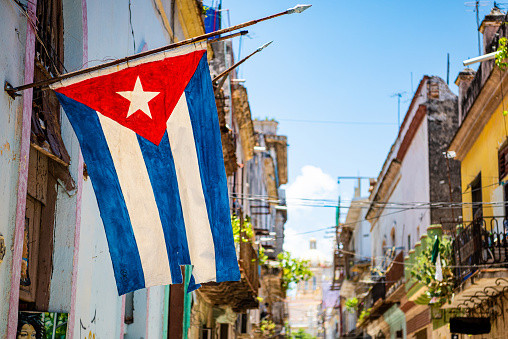
On Monday, Cuba asserted that the U.S. government holds a "direct responsibility" for the massive protests that occurred on the Caribbean Island two years ago, representing the most significant unrest since Fidel Castro's revolution in 1959.
"The United States has a direct responsibility for the disturbances of July 11 and 12, 2021,"
ahead of the anniversary of the protests, the state-controlled Granma newspaper, operated by the Communist Party, stated in a front-page editorial that the accusations were made without presenting any supporting evidence.
According to the newspaper, individuals were openly encouraged and financially supported by the United States to engage in illegal activities such as theft and assault.
These allegations were made at a time when the United States was intensifying its sanctions against Cuba, while the country's economy was already facing challenges due to the COVID-19 pandemic.
The editorial further condemned a "campaign of disinformation and slander" carried out through social media platforms.
"Slander promoted by the White House, related to events it sponsored in 2021, is used as a pretext to maintain a policy of maximum pressure against Cuba," it said.
The current administration of President Joe Biden, according to the newspaper, has continued to implement a policy initially designed by the administration of Donald Trump. This policy was described as being "severely applied."
In July 2021, a significant number of Cubans took to the streets in nearly 50 cities across the country, demanding "freedom" in response to a severe economic crisis, considered the worst in thirty years.
As a result of frustrations caused by long queues for essential supplies such as food, public transportation, fuel, and medicine, more than 140,000 Cubans have migrated to the United States since October 2021, as reported by the U.S. government.
Following the brief duration of the protests, Cuban authorities proceeded to sentence hundreds of individuals to prison on various charges, including public disorder and sedition. As a result, activists have raised concerns about human rights violations in Cuba.
The U.S. State Department denied any involvement in the 2021 protests and reiterated its demand for the immediate release of approximately 700 Cuban political prisoners.
"As the entire world knows, the Cuban people protested for themselves," a U.S. State Department official said, adding that "the regime continues to violently repress virtually any kind of peaceful public dissent and detains, harasses, and threatens families of detained protesters who dare speak publicly about their detained family members."
The European Union has also urged the Cuban government to release the protesters.
"More than anything, this editorial reflects the state of relations between the United States and Cuba," said Arturo Lopez-Levy, a foreign relations expert at the Autonomous University of Madrid. "A climate conducive to at least reducing tensions over the issue has not been built."
According to Lopez-Levy, the release of prisoners would face significant challenges as long as the United States continues to pursue hostile policies on certain fundamental issues, Reuters reported.
Two years after the protests, some Cuban emigrants expressed their desire to commemorate the anniversary. While additional plain-clothed security officials were observed in certain areas of the capital on Monday, the streets of Havana remained calm.
© 2025 Latin Times. All rights reserved. Do not reproduce without permission.




